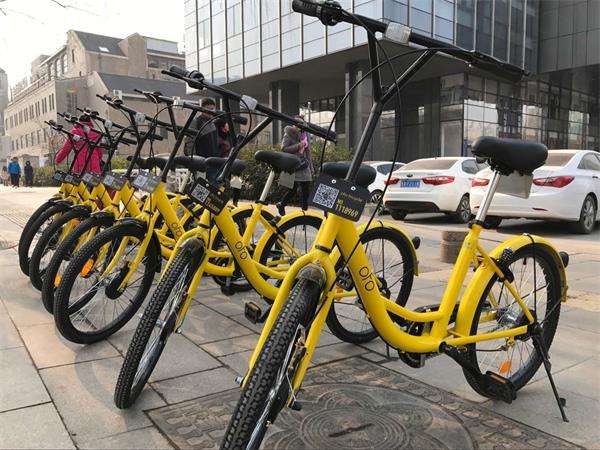ã€Global Internet Reporter Zhang Zhiying】 May 5, according to the "Financial Times" report, under the cycling boom in China, the traditional bicycle factory is facing great challenges, the industry said that Mobai and ofo shared Cycling applications have caused their domestic sales to decline last year, undermining the supply chain and business model of traditional bicycles. Now, some bicycle factories are facing a dead end.

Yu Yuefeng, general manager of the bicycle manufacturer Phoenix, said last week: “Bicycle store operators stated that sales have decreased this year, and some stores have closed down. Some factories have switched to production of shared bicycles, driving up parts prices and triggering supply chain problems.†He said: "The profitable bike factory may be difficult to maintain or even go bankrupt."
With the availability of bicycles on the streets, there are few people who are willing to purchase bicycles from their pockets. Many workers today like to share bicycles instead of buying bicycles.
There are two main uses of bicycle owners: commuting and leisure sports. At present, most people in the country still use bicycles as a short-distance vehicle. Relevant data show that China’s current bicycle ownership is approximately 3-5 billion. The “Bicycle Sports Industry Development Report†released by the Shanghai Institute of Sports last year shows that only 6 million people are riding enthusiasts in the country, even for every enthusiast. With more than one bicycle, the overall scale is much smaller than the commuter market.
According to media reports, from 1980 to 2014, the proportion of Beijingers who went to work on bicycles dropped from over 60% to 12%. With the prosperity of China's economy over the past 30 years, many consumers have bought motorcycles, electric cars and cars, and the subway and bus systems have gradually improved, constituting the basic mode of travel for the Chinese people. Now, the hot use of shared bicycle applications has reversed this trend. Convenient and inexpensive new modes of transportation have become the best choice for people to travel.
Traditional bicycle manufacturers are aware of the potential threat posed by shared bicycles and participate in this emerging field by investing in shares. Among them, the oldest bicycle factory is the most obvious, and the new Sanban listed bicycle company Kailuoshi.
On the other hand, the sharing economy has also stirred up the Chinese bicycle manufacturing industry. According to market research firm IbisWorld, last year China’s bicycle sales revenue was US$11 billion and there were 150,000 employees. The operation of a shared bicycle company is more like a technology company. Although it has a large loss, it is backed by well-funded investors.
Yu Fengfeng, general manager of Phoenix, said: "These Internet companies are more concerned about traffic, data and market share, so they launch applications, build platforms, thinking about profitability in the future." Mobi launches 3.65 million bicycles in 50 cities Instead of buying and transforming a conventional two-wheeled bicycle, the company decided to design it for easy maintenance and connection to the Internet. The wheels of the bicycle do not need to be inflated, the body material is not easily rusted, and GPS is also installed so that the user can easily determine the position of the vehicle. Mobye said: "At first we talked to traditional bicycle factories, but we think that the use is very different and we should redesign."
After building his own factory, Mobba now works with other suppliers to increase production. With the help of Foxconn, the company said it has achieved an annual capacity of 36.5 million vehicles, close to half of the world's total bicycle production.
The shared bike company has raised hundreds of millions of dollars in one year and put millions of bicycles into the streets of Chinese cities. In addition to the leading Mobike and ofo, there are more than 20 small competitors joined in, causing prices to drop, forcing them to provide subsidies to maintain market share, which is similar to Uber.
Previously, Silicon Valley entrepreneurial godfather Steve Hoffman once told a Global.com reporter that he still had doubts about the current business model of sharing bicycles. Because there are no commercial barriers, competitors can enter arbitrarily. It is the current challenge of sharing the cycling industry.
Shirley Cheng, sales manager for permanent bicycle company, said she called on the government to more strictly monitor the sharing economy and prevent the economy from facing the problem of overcapacity again. She said: "There are many shared bicycle suppliers in the market, many of which are not profitable. There will be a major reshuffle in the next 1-2 years."
On the other hand, with the participation of Mobike and ofo in Singapore and other international markets, the number of shared bicycles sold overseas has been increasing. Traditional bicycle manufacturers have difficulty coping with it. Phoenix began to provide bicycles for ofo. These bikes are cheaper and more classic, with only a few simple modifications.
The traditional bicycle market, such as permanent, flying pigeons, and phoenix, has undergone a change and is facing a shrinking market. The outlet is likely to become an upstream model of the Internet model.
1.2 Inch Fnd Numeric Display,Indoor Fnd Numeric Display,Single Digit Fnd Numeric Display,1 Digit Fnd Numeric Display
Wuxi Ark Technology Electronic Co.,Ltd. , https://www.arkledcn.com
